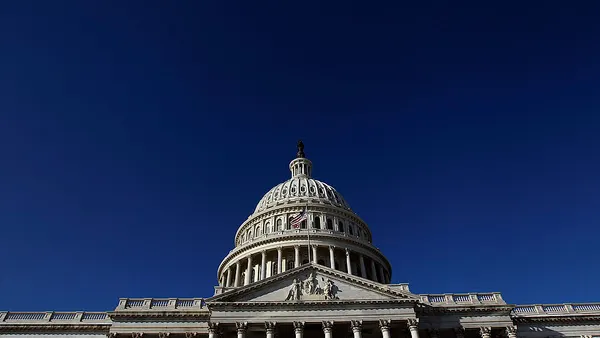Dive Brief:
-
Value-based care initiatives introduced by legislation like MACRA are supposed to reduce costs while improving outcomes, but evidence suggests it may not work, two healthcare policy academics wrote for Vox.
-
Paying physicians for performance can actually have the unintended effect of making patients’ health worse, according to Stephen B. Soumerai, a professor at Harvard Medical School, and Ross Koppel, a professor at the University of Pennsylvania.
- Many improvements being made in healthcare are accompanying pay-for-performance policies, but these are being made independent of financial rewards for physicians.
Dive Insight:
Studies extolling the benefits of pay-for-performance suffer from “history bias,” according to Soumerai and Koppel. Improvements are being made in healthcare, but they are not necessarily tied to initiatives that pay physicians for delivering quality care.
The present system “relies on weak and uncontrolled research designs, misleads policy makers and the public, and will ultimately lead to perverse effects, such as unsustainable costs, unhappy clinicians, and policies that may damage rather than improve the quality of medical care,” Soumerai, along with Dr. Huseyin Naci, had previously written for a CDC publication.
There are several reasons why financial incentives do not help to improve outcomes, according to Soumerai and Koppel. In some instance, physicians receive rewards or avoid penalties by doing things that are common practice, like prescribing antihypertensive drugs. In a worst case scenario, pay-for-performance initiatives could deter physicians from treating the most vulnerable patients.
Predicting how certain healthcare stakeholders will behave is proving difficult. Both physicians and patients respond to various incentives in unanticipated ways. More robust research programs could help to better understand behavior and drive more effective policy, according to Soumerai and Koppel.
Turntable Health CEO Dr. Zubin Damania, aka ZDoggMD, weighed in on the Vox article on Thursday, noting medical professionals respond to initiatives that give them a sense of purpose and autonomy while improving their skills. Drawing his thoughts from Dan Pink's ideas on motivation and the relationship between financial incentives and cognitive professions, Damania stated pay-for-performance results in situations where physicians feel they have less autonomy and are not improving on their skills.
"Deep down we know these quality measures don't really measure quality. There are a lot of things that count that cannot be counted. And there are a lot of things you can count that don't get counted," Damania said, adding such P4P initiatives, such as MACRA, will end in "absolute waste" because more time will be spent on checking boxes to please bean counters. Check out his vlog below or on ZDoggMD's Facebook page (the P4P content starts around 12:50):












